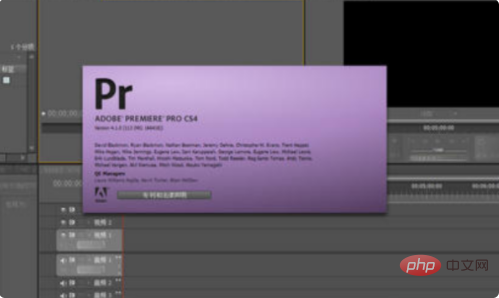
The difference between PS and PR: 1. PS can perform various transformations on images, such as enlarging, reducing, rotating, tilting, mirroring, perspective, etc.; while PR provides collection, editing, color grading, beautifying audio, A complete process of subtitle addition, output, and DVD burning; 2. PS mainly processes digital images composed of pixels, while PR is used in advertising production and TV programs.

#The operating environment of this article: windows10 system, adobe photoshop cs6, thinkpad t480 computer.
The difference between ps and pr:
The main difference is that they have different properties, main functions, and applications. The details are as follows:
1. Different nature
1. PS
Adobe Photoshop, referred to as "PS", is an image processing software developed and distributed by Adobe Systems.
2. PR
Premiere, referred to as "PR", is a video editing software developed by Adobe.

2. Different main functions
1. PS
Image editing is the basis of image processing. Perform various transformations on images, such as enlarging, reducing, rotating, tilting, mirroring, perspective, etc.; you can also copy, remove spots, repair, and modify image damage, etc.
2. PR
Premiere provides a complete set of processes for capturing, editing, color grading, audio beautification, subtitle addition, output, and DVD burning, and is efficiently integrated with other Adobe software to complete editing. , production effect.
3. Different applications
1. PS
mainly processes digital images composed of pixels. Use its numerous editing and drawing tools to effectively edit pictures. PS has many functions, covering images, graphics, text, videos, publishing and other aspects.
2. PR
is an essential video editing tool for video editing enthusiasts and professionals, and is widely used in advertising production and TV program production.
Related learning recommendations: PS video tutorial, premiere entry-to-master tutorial
The above is the detailed content of What is the difference between ps and pr. For more information, please follow other related articles on the PHP Chinese website!